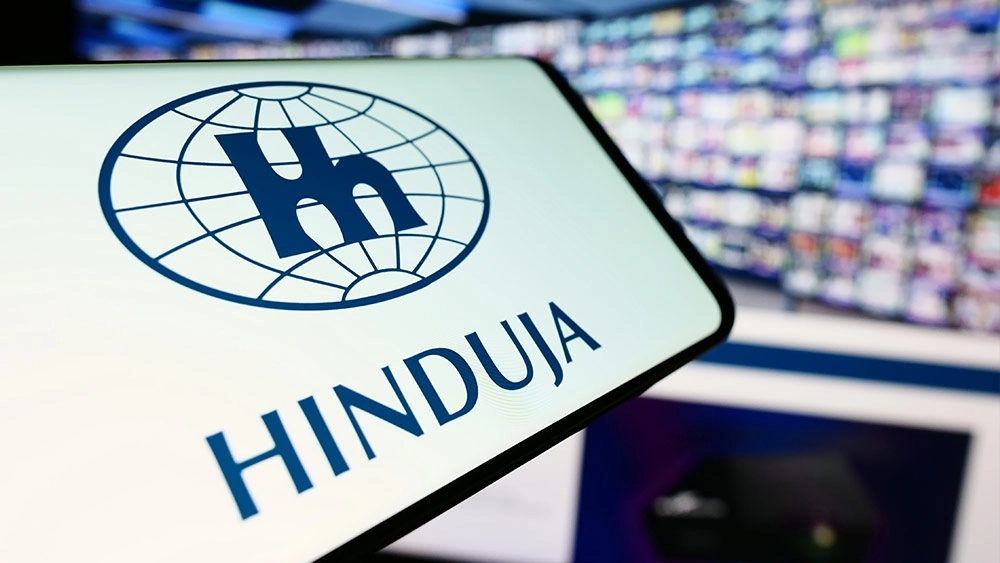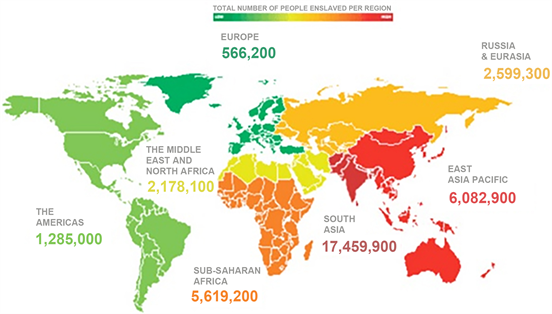Shocking: Billionaire Hindujas, UK’s Richest Family, Accused Of Trafficking ‘Spent More On Dog Than Staff’; The Truth About “Modern Slavery” And How The Rich Are Contributing To It?

One might believe that slavery was something that existed in the past; however, nearly 50 million people are currently trapped in modern slavery worldwide and shockingly, the billionaire Hinduja family is facing trial in Switzerland for alleged human trafficking after accusations from their domestic staff about exploitation and mistreatment.
The Hindujas, Britain’s wealthiest family, has been accused by prosecutors of spending more money on a dog than on a servant; the accusation is part of a case of alleged abuse and human trafficking at their Lake Geneva villa.
According to the prosecutors, a servant was forced to work up to 18 hours a day, seven days a week, for only seven Swiss francs ($8) per day.
The trial started on Monday, following the indictment of four Hinduja family members last year by Geneva prosecutors on charges of human trafficking and mistreatment of their domestic staff.
The prosecution alleged that Ajay Hinduja, his wife Namrata, his father Prakash, and mother Kamal made their Indian staff work up to 18 hours daily without any days off.
Ajay testified before the court, claiming he had no knowledge of the employees and that the Hinduja group’s India arm managed recruitment. Prakash and Kamal did not appear in court, citing poor health.
Meanwhile, Prosecutor Yves Bertossa stated in Geneva’s criminal court that the family “spent more for one dog than one of their servants.”
He quoted a budget document titled ‘Pets’, showing that the family spent 8,584 Swiss francs ($9669) on their family dog in a year.
He further noted that the staff contracts lacked specific details about working hours, requiring employees to be available at any time upon request. The allegations also included that the staff’s passports were confiscated, and they were not permitted to leave the house without the employer’s permission.
 Response by the Hinduja Family Lawyer
Response by the Hinduja Family Lawyer
The attorneys for the Hinduja family have strenuously denied the accusations, asserting that the servants have always been treated with “dignity and respect” and accused the prosecutor of misleading the court with unnecessary exaggerations.
“When they sit down to watch a movie with the kids, can that be considered work? I think not,” said Yael Hayat, a lawyer for family scion Ajay Hinduja.
Hayat added that a staff member had admitted her pay in Geneva was better than what she was earning in India and accused the Geneva prosecutor’s office of confusing justice with social justice.
Likewise, the Hinduja family lawyers argued that the family members themselves were not involved in hiring or managing staff daily.
In a statement to Forbes, Romain Jordan, another attorney for the Hinduja family, called the criminal indictment “excessive” and accused the prosecutors of bias against the billionaire family.
“No other family would have been treated this way. Our clients remain determined to defend themselves and have confidence in the judicial system,” said Jordan.
 Hinduja Group, Britain’s Wealthiest
Hinduja Group, Britain’s Wealthiest
The Hinduja Group, a vast conglomerate owned by the family, operates in nearly 12 different sectors, including finance, IT, and infrastructure.
The family also owns valuable properties in London, such as the Raffles Hotel located at the Old War Office in Whitehall, where the most expensive suite costs £25,000 per night.
Following the death of SP Hinduja last year, his brother Gopi has taken charge of the family’s businesses.
Dark Side of Geneva
Notably, Geneva, a hub for international organizations and the wealthy, has had many such instances in the past for the alleged mistreatment of servants.
In 2008, Hannibal Gaddafi, son of Libya’s former dictator Muammar Gaddafi, was arrested in his five-star Geneva hotel by police on allegations that he and his wife had been beating their servants, including with a coat hanger.
Although the case was later dropped, it sparked a major diplomatic row between Switzerland and Libya, with two Swiss citizens arrested in Tripoli as retaliation.
Just last year, four domestic workers from the Philippines launched a case against one of Geneva’s diplomatic missions to the United Nations, claiming they had not been paid for years.
The ongoing, high-profile case against the Hindujas will undoubtedly once again draw attention to the darker, uglier side of a city that likes to call itself “the city of peace.”
G20 Countries Fueling Modern Slavery
According to a new report, the number of people living in conditions of modern slavery has risen by 25% in the past five years, totalling 50 million individuals worldwide.
The increase is partly said to be due to the actions of the Group of 20 nations, where trade operations and global supply chains often facilitate human rights abuses.
Within the G20, India leads this concerning trend where 11 million people are estimated to be working as forced labourers; following India are China, Russia, Indonesia, Turkey, and the United States.
However, over the past five years, the majority of modern slavery has escalated significantly – in 2021 alone, there were 10 million more individuals living in modern slavery compared to global estimates in 2016; women and children remain disproportionately affected by this issue.
Modern slavery exists in almost every country globally, crossing ethnic, cultural, and religious boundaries, and while modern slavery may differ from historical forms like the Transatlantic slave trade, it includes a wide range of exploitative practices, including human trafficking and individuals born into slavery.

Modern slavery is all around us, often concealed in plain sight – serving food, harvesting crops, working in factories, or providing household services such as cooking, cleaning, or childcare.
Sadly, victims of modern slavery frequently endure violence, threats, insurmountable debts, and loss of personal documents, facing the constant fear of deportation.
So what leads to Modern Slavery?
Many individuals have become trapped in modern slavery while seeking to escape poverty and insecurity and improve their lives to support their families, and once trapped, they find themselves unable to leave. Thus, it is the rich, affluent people and societies that are to be majorly blamed in the case of domestic slavery.
The latest Global Estimates of Modern Slavery (2022) by Walk Free, the International Labour Organization (ILO), and the International Organization for Migration (IOM) paint a stark picture –
- Approximately 49.6 million people are currently living in modern slavery, encompassing forced labor and forced marriage.
- Approximately a quarter of all victims are children.
- 22 million people are subjected to forced marriages, with two out of five of these individuals having been children when the marriage was forced upon them.
- Within the 27.6 million people trapped in forced labor, 17.3 million endure exploitation in the private economy, 6.3 million suffer from commercial sexual exploitation, and nearly 4 million are coerced into forced labor by state authorities.
- The conditions worsened by the Covid-19 pandemic have worsened the circumstances that lead to modern slavery, particularly affecting vulnerable migrant workers.
 Modern Slavery
Modern Slavery
Human trafficking involves using violence, threats, or coercion to transport, recruit, or harbor individuals for exploitation such as forced prostitution, labor, criminal activities, marriage, or organ removal.
Domestic work can provide crucial income, yet when unregulated, it leaves workers vulnerable to abuses and exploitation. Working in someone else’s home can conceal victims from public view, leaving them without legal protections and at risk of slavery.
Forced labor is where individuals are forced to work or provide services against their will, typically under the threat of punishment.
Debt bondage or bonded labor is the most widespread form globally, where individuals trapped in poverty borrow money and are forced to work to repay the debt, losing control over their employment conditions and freedom.
Child slavery or exploitation of children for others’ gains, includes child trafficking, child soldiers, child marriage, and child domestic servitude.
The Final Arc
Modern slavery can be seen in every corner of the globe in different forms, and while it may be hidden in plain sight, its impact controls the lives of millions.




